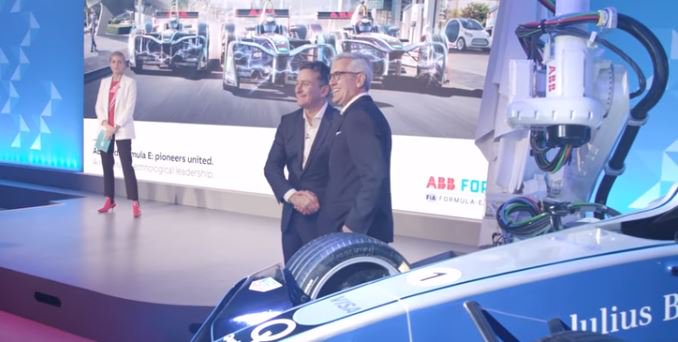(REPOST: ABB)
For car enthusiasts who eagerly await the latest performance figures from the automotive press, the number 2.27 was a revelation. That was the number of seconds it took to complete the quickest zero-to-60) mph sprint ever clocked by Motor Trend magazine. That burst of rocket-launch acceleration early last year was not a tire-melting blast from a million-dollar Italian supercar. Rather, it was a sprint by a family sedan built in California. And, oh by the way: No carbon dioxide was emitted in the course of the test. The car was all electric – a Tesla Model S P100D.
If the world needed additional proof, it was simply further evidence that the electric car should no longer be thought of solely as an environmentally correct, no-nonsense mode of transport. Today’s electric vehicles (EVs) can take their place alongside the best fuel-fired high performance cars.
Of course, anyone who has been paying attention already knew that.
After all, the Formula E circuit – the electric-car cousin of Formula 1 grand-prix auto racing – is already in its fourth season and is now sponsored by ABB, the global leader in EV charging technology and electrical power-control systems. The series is now known as the ABB FIA Formula E Championship – the fourth race of the 2017-18 series gets underway in Santiago, Chile, on February 3.
And as automotive historians can tell you, electric cars have always been able to compete at the track. The first car in history to exceed 100 mph (161 km/h) was an electric motor Baker Torpedo that broke that speed barrier in a speed trial back in 1902, outrunning a field of internal-combustion competitors.



